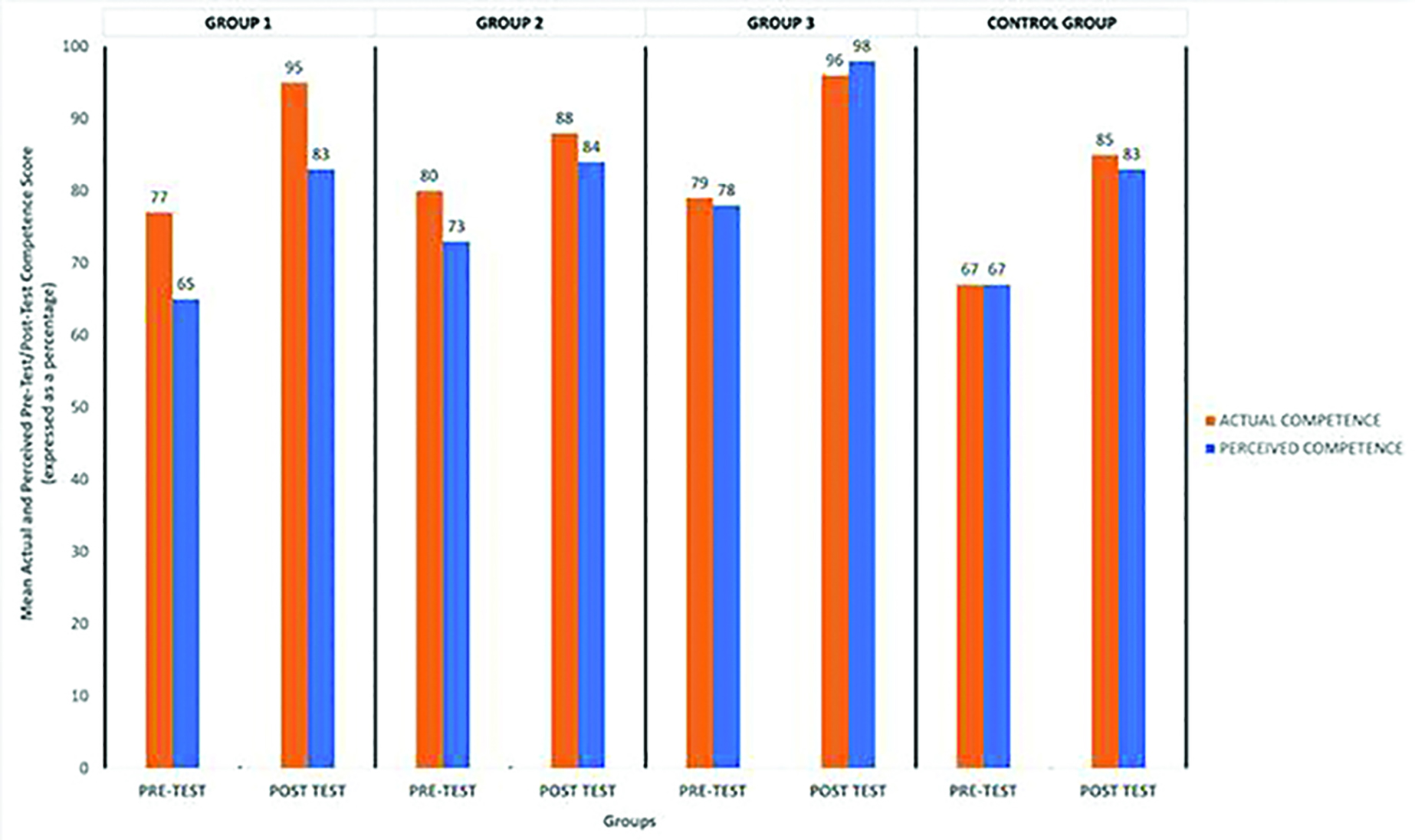
Medication administration is a high-risk clinical task, with errors contributing to preventable harm worldwide [1]. Competence in medicine calculation is essential to patient safety, yet nursing students often report anxiety and low confidence, increasing the risk of errors. Virtual learning environments provide valuable opportunities to develop students’ skills, build confidence, and enhance competency in medication administration.
This pilot study investigated the relationship between exposure duration to asynchronous virtual medication dosage calculation scenarios and nursing student actual and perceived competence, using a randomised quasi-experimental research design (pre- and post-test). Ethical approval was gained at each site before second/third-year pre-registration undergraduate nursing students were recruited from six sites in the UK and Canada in 2023 using purposive sampling. Participating students completed an orientation to the safeMedicate® Authentic Virtual Drug Dosage Calculation Clinical Learning Environment (VLE), and safeMedicate® 25-item Healthcare Numeracy Assessment (HNA) before being allocated to one of four groups with different exposure times to a safeMedicate® COVID-19 education module.
Actual and perceived competence assessment outcomes for all students (n=38) across the four groups were analysed and compared before and after variable exposure to the intervention using descriptive and inferential statistical analyses. Results showed that groups were homogeneous at baseline, i.e. no differences in the mean pre-test assessment results. Post-test assessment results showed that mean actual competence scores increased from 77 pre-test to 92 post-test, with perceived competence scores mirroring these results for all groups, including the control group which did not have intervention exposure. There was no evidence of significant outcome differences between groups with varied exposure duration, suggesting that increased exposure time did not translate into enhanced competence improvement. Rather, results indicated that exposure to the VLE and initial baseline and HNA assessments with outcome feedback had the greatest influence on the improvements found, and the psychological and confidence-building value of this VLE. This is consistent with previous research on self-efficacy enhancement effects of digital learning [2,3].
The lack of significant differences between groups with varying exposure durations found in this pilot study contradicts earlier studies advocating for prolonged engagement with VLEs to achieve competence [4]. Instead, the findings suggest that the increase in actual and perceived competency scores occurred because feedback on performance was also provided to students after each VLE assessment they completed. This may indicate that simulation-based intervention effectiveness is based on instructional design rather than on exposure time. However, because a key limitation of this pilot study is its small sample size, further research on a larger scale building on this pilot study is needed to explore and understand the impact of instructional design, feedback, and interaction on learning outcomes and the psychological and confidence-building value of this intervention and VLE.
As the submitting author, I can confirm that all relevant ethical standards of research and dissemination have been met. Additionally, I can confirm that the necessary ethical approval has been obtained, where applicable
1. World Health Organization. Global burden of preventable medication-related harm in health care: A systematic review. Geneva: World Health Organization; 2023. Available from: https://iris.who.int/bitstream/handle/10665/376203/9789240088887-eng.pdf?sequence=1.
2. Goldsworthy S, Muir N, Baron S, et al. The impact of virtual simulation on the recognition and response to the rapidly deteriorating patient among undergraduate nursing students. Nurse Education Today. 2022;110.
3. Heyn LG, Brembo EA, Byermoen KR, et al. Exploring facilitation in virtual simulation in nursing education: a scoping review. PEC Innovation. 2023;3.
4. Sato SN, Moreno EC, Rubio-Zarapuz A, et al. Navigating the new normal: adapting online and distance learning in the post-pandemic era. Education Sciences. 2024;14(1):1–25.
The authors acknowledge the Canadian Association of Schools for Nursing (CASN) for the Pat Griffin Grant. Special thanks to Fiona Budden, Ryan Muldoon and Jan Hutt from Bournemouth University.
